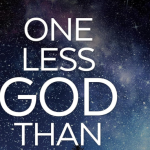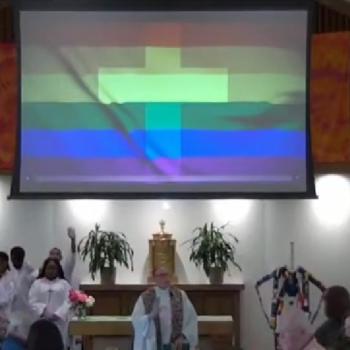In my last article, I highlighted the circularity problem inherent in the Protestant foundational doctrine, sola scriptura. To rephrase my conclusion:
- Any appeal to Scripture is an appeal to an interpretation of Scripture.
- The Scriptures require a legitimate authority to properly read, exegete, and interpret them.
- All appeals to the “standard of Scripture” for self-correction fall into the category of “any appeal.”
- Any attempt at self-correction that appeals to Scripture ultimately appeals to an interpretation of Scripture. Therefore, the paradigm of sola scriptura offers no escape from this circularity.
Now, some Protestants respond to my critique by claiming that I too fall into this circularity problem since I, as a convert, chose Catholicism by appealing to history and Scripture. I call this the “in the same boat” response. Please note that this response does not challenge premises or the conclusion. This response merely states that I’m trapped in the same circular loop as Protestants. Is this true?
Below, I explain why a Catholic, or a Catholic convert like me, is not “in the same boat” as Protestants when it comes to submitting to the Catholic Church because of their personal interpretation of history and Scripture.
The Catholic End of Personal Interpretation
To start, a person considering Catholicism may use their personal interpretation of history and Scripture—including Christ’s words in Matthew 16:18, ‘upon this rock’—to confirm the Church’s truth claims and divine origin. However, once they reach this confirmation, they submit all future interpretations to the Church’s authority. This submission is a decisive, one-time act. In short, a Catholic or Catholic convert ceases to rely on their own ongoing personal interpretation to determine doctrine. The Church—not the individual reader or interpreter of Scripture—alone determines dogma and doctrine. I, as a Catholic, must do my best to submit and assimilate Church teaching, not correct the Church or demand the Church bend to my personal interpretation of Scripture. Furthermore, if I fall out of the theological orthodoxy as defined by the Church, the Church possesses the authority to correct me and tell me, “No.”
We see this paradigm at work throughout Church history at the Council of Jerusalem, Nicaea, Constantinople, etc., where the Church corrected individual interpretations of Scripture to preserve unity. When individual personal interpretations of Scripture threaten Church unity, the Church responds by correcting the individual.
The Doctor Analogy
Moreover, we see this paradigm in our everyday lives in choosing a doctor. Such an important choice, especially in the case of severe illness, requires due diligence and intense research to determine the best doctor. However, once we choose a doctor, we recognize their authority (an external authority) and surrender ourselves to their care. Researching the best doctor does not make us doctors ourselves. Likewise, the Catholic convert, upon recognizing the Church’s external authority, submits to it.
The Way Out of the Circular Interpretation Loop: Surrender to Legitimate Authority
As stated above, the Catholic surrenders their personal interpretation of doctrinal and dogmatic issues to the authority of the Church. They do this upon realizing—through historical study and, yes, Scriptural interpretation—the Church’s truth claims and divine origin. The key here is to surrender. If a Christian relies solely on their personal interpretation of Scripture for correction, they remain trapped in the circularity loop.
In other words:
- Any appeal to Scripture is an appeal to an interpretation of Scripture.
- The Scriptures require a legitimate authority to properly read, exegete, and interpret them.
- All appeals to the “standard of Scripture” for self-correction fall into the category of “any appeal.”
- Any attempt at self-correction that appeals to Scripture ultimately appeals to an interpretation of Scripture. Therefore, the paradigm of sola scriptura offers no escape from this circularity.
- The only way to break this circularity loop is to submit to a legitimate authority—the Catholic Church—which properly reads, exegetes, and interprets Scripture.
So, by surrendering to the Church, I escape the circularity loop inherent in the paradigm presented in sola scriptura.
Thank you!
If you liked this article, please leave your comments below. I am very interested in your opinion on this topic.
Read The Latin Right’s other writing here.
Please visit my Facebook page and IM your questions (and follow my page) or topics for articles you would like covered.
Also, please subscribe my YouTube page for updates on upcoming articles.













